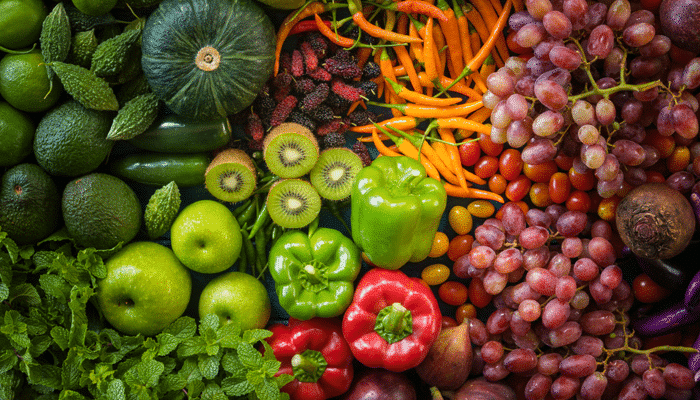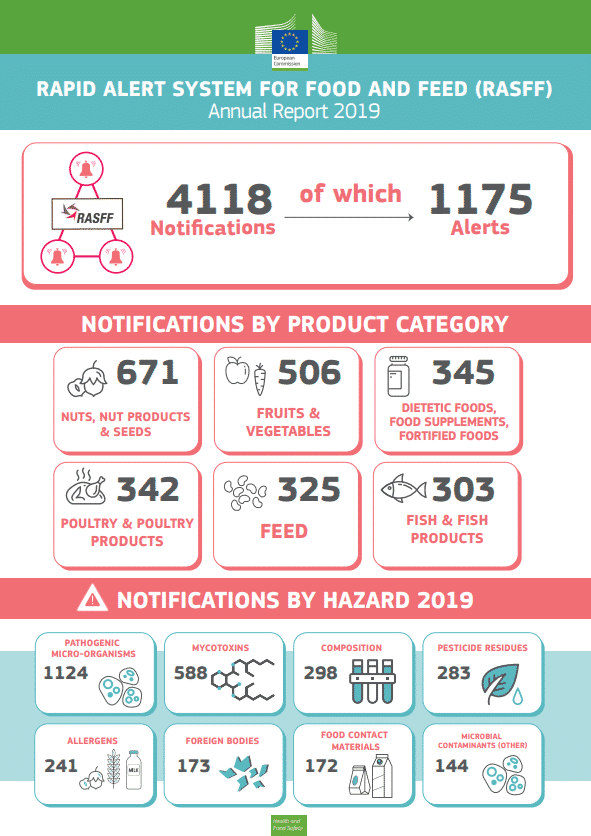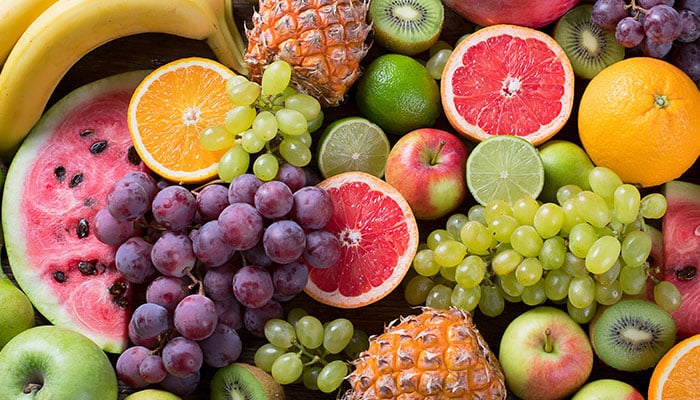
Article réservé aux abonnés

The 2019 RASFF annual report for food and feed products has just been published.
In 2019, 4,118 notifications were sent through the RASFF portal, including 1,173 alert notifications, 546 information for follow-up, 882 notifications for information and 1,499 border rejection notifications.
Compared to 2018, the number of alert notifications involving a serious risk to health increased by 5%.
HUMAN FEEDING
Pathogenic microorganisms:
575 notifications were reported concerning pathogenic microorganisms, mainly on products of animal origin. This represents an increase of 17% compared to the year 2018.
Salmonella is the most frequently reported pathogen in food in EU member countries (371 notifications, up 51%).
The presence of Listeria monocytogenes in cold-smoked fish products and in ready-to-eat meat products was a major cause of food-borne outbreaks in 2019. It has been reported 16 times in French cheeses (often made from raw milk).
32 notifications related to Escherichia coli producing shigatoxin were issued. Contamination, of animal or human origin, is most often found on meat products (not heat-treated) (15 notifications) and on cheeses (14 notifications).
Allergens:
194 notifications were issued. They are up 30%.
Milk, gluten and soy are the most frequently reported allergens, and grains and baked goods are the most frequently reported.
Very often, traces of allergens are reported in food due to cross contamination, for example on the same production lines as other products containing allergens. This presence of allergens is not regulated at EU level.
Mycotoxins:
534 notifications were issued.
Aflatoxins are the most reported mycotoxins, in particular on nuts from third countries. The most notified country was Turkey (104 notifications).
Regarding ochratoxin A, it is found in raisins and dried figs and Turkey is the most notified country.
Pesticides:
253 pesticide notifications were issued in 2019.
The most recurring notifications concerned fruits and vegetables whose most common molecule is chlorpyrifos (banned at the start of the year) as well as teas from China.
ANIMAL FEED
A total of 325 notifications were issued.
Feed notifications represent around 8% of the total volume of RASFF notifications.
Pathogenic microorganisms:
All 166 notifications concern salmonella, in different types of raw materials, but also in pet food.
Mycotoxins:
Almost all of the notifications concern aflatoxin reported mainly in peanuts.
Microbial contamination:
Most of the notifications concern too many Enterobacteriaceae in raw materials derived from animal by-products.





